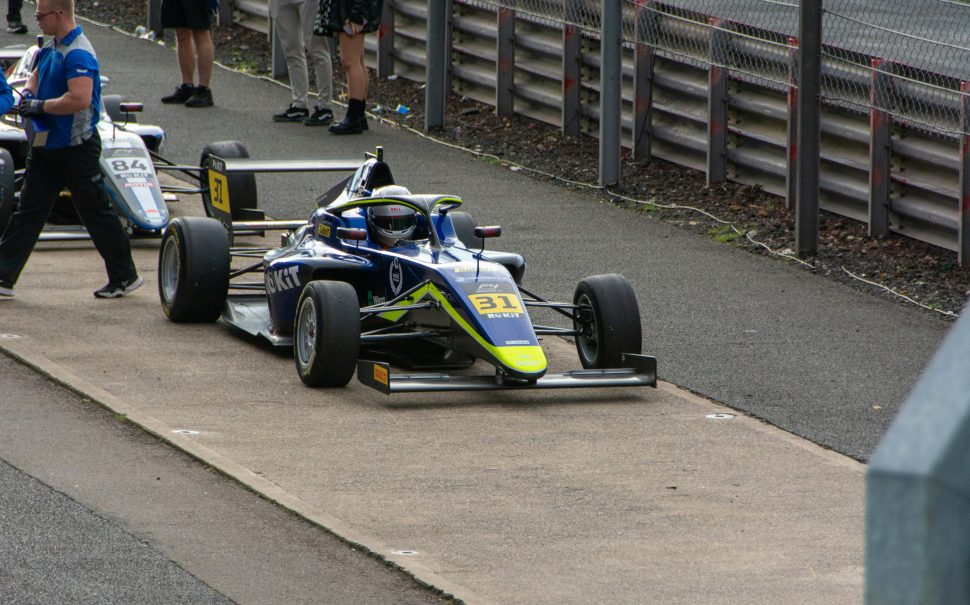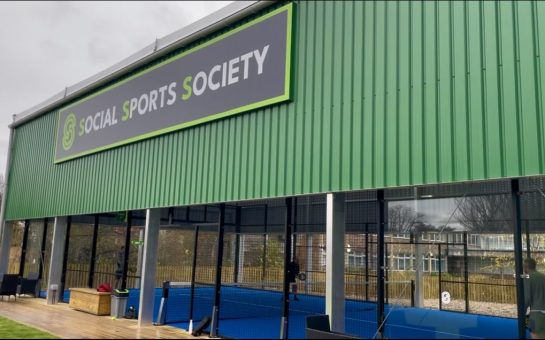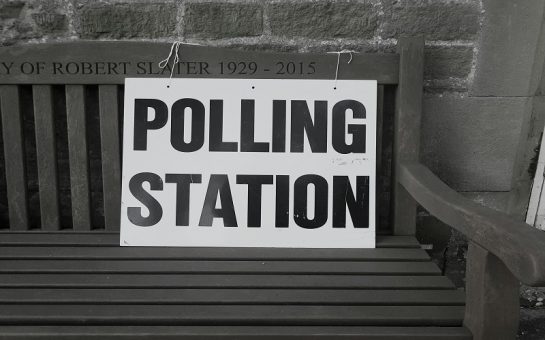The number of women in the UK pursuing technical careers in motorsport is up nearly a quarter from 2020, new data shows.
Data from the February 2024 ONS Labour Market Overview shows women have been taking on technical, scientific, and mechanical roles in the British motorsport industry.
Typically seen as a ‘boys club’, motorsport once restricted women to the roles of ‘grid girls’ rather than offering them substantial jobs, but the data suggests that is changing.
Laila Fadli Dokkali, a recipient of the Mission 44 and Royal Academy of Engineering scholarship, believes that motorsport needs to level its playing field by starting from the ground up.
She explained: “The reality is that motorsport is an elitist sport. Change comes from asking and pushing, or it just won’t happen.
“There’s still a lot of work to do to break those chains of influence and generations of advantage and it can’t just be scholarships or programmes – it must be a follow-up and a push.
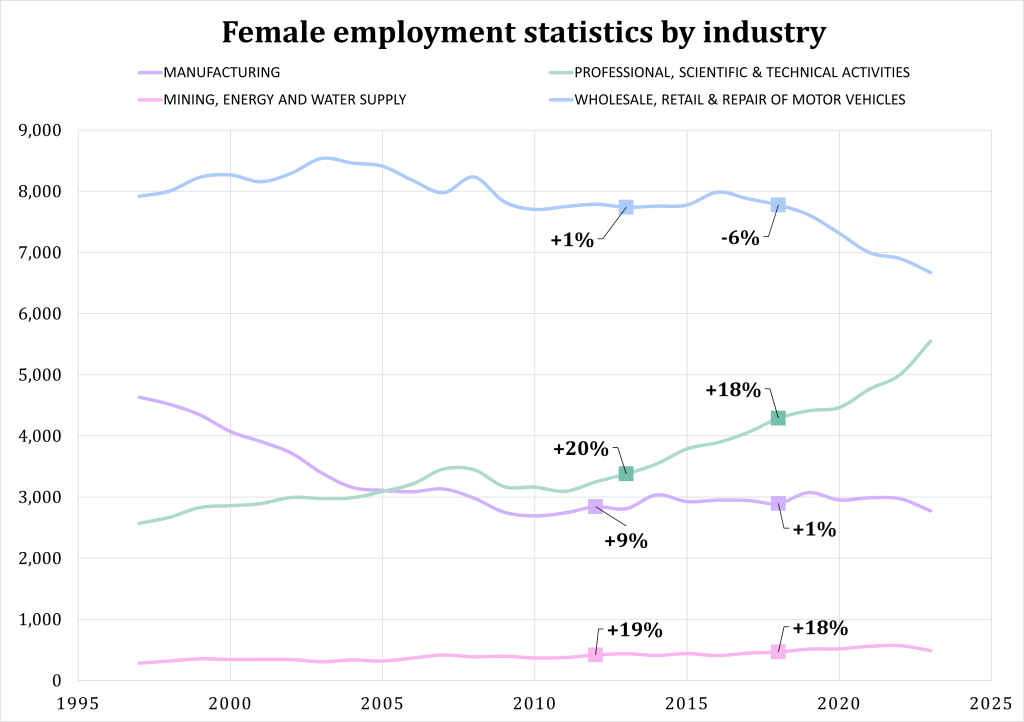
The number of women becoming mechanics, engineers, and technicians is increasing despite the impact of the Covid-19 pandemic.
While most industries in the UK were affected by the pandemic, (including the manufacturing, mining, energy and water supply sectors) there has been a 24% increase in women pursuing professional, scientific, and technical activities since 2020.
This includes the number of women pursuing technical roles within motorsport, such as performance engineers at Formula 1 teams, operating wind tunnels and aerodynamicists.
Fadli Dokkali added: “It’s important for young girls to see people like them because you can’t aspire to be something you can’t see.
“Having a successful female role model with a similar background to you is so important, it gives kids that aspiration.
“It’s going to take a long time but the biggest impact will come from starting young, teaching the kids that they can get to motorsport no matter who they are or where they come from.”
Girls On Track is an initiative run by the Motorsport UK and the FIA, the official governing body of motorsports.
They start from the ground up, targeting school girls by offering community events, webinar series, networking opportunities, and exclusive experiences to those interested in motorsport.
Girls On Track programme manager Jenny Fletcher said: “If you don’t know someone who might be able to introduce you to the industry, it’s virtually impossible to get your foot in the door.
“One of our targets is to make sure that 50% of the pupils attending events are in the pupil premium, which means they are from low-income families.
“We want to make sure that they are being offered the chance to do something that they perhaps wouldn’t ordinarily get.”
By targeting schoolgirls, Girls On Track teaches young women that there is a space for women in motorsport.
Fletcher continued: “It’s going to take time, but over the last eight years we are slowly seeing a difference.
“The first set of girls started with us at just eight years old, even now that they’re 16, we’ve got a while to go before we truly see that big change.
“We want people to learn that no matter what your interests or passions are, it can be linked to motorsport and we want them to learn the breadth of the sport. If you like finance, every team has a finance department. If you’re interested in art, there’s always a design team.
“I think the attitudes are changing. There’s an outward sign of support and necessity like we must make it more diverse and inclusive because it brings so many different skills and qualities to a team. If you want that high performance, it comes from all sorts of backgrounds.”
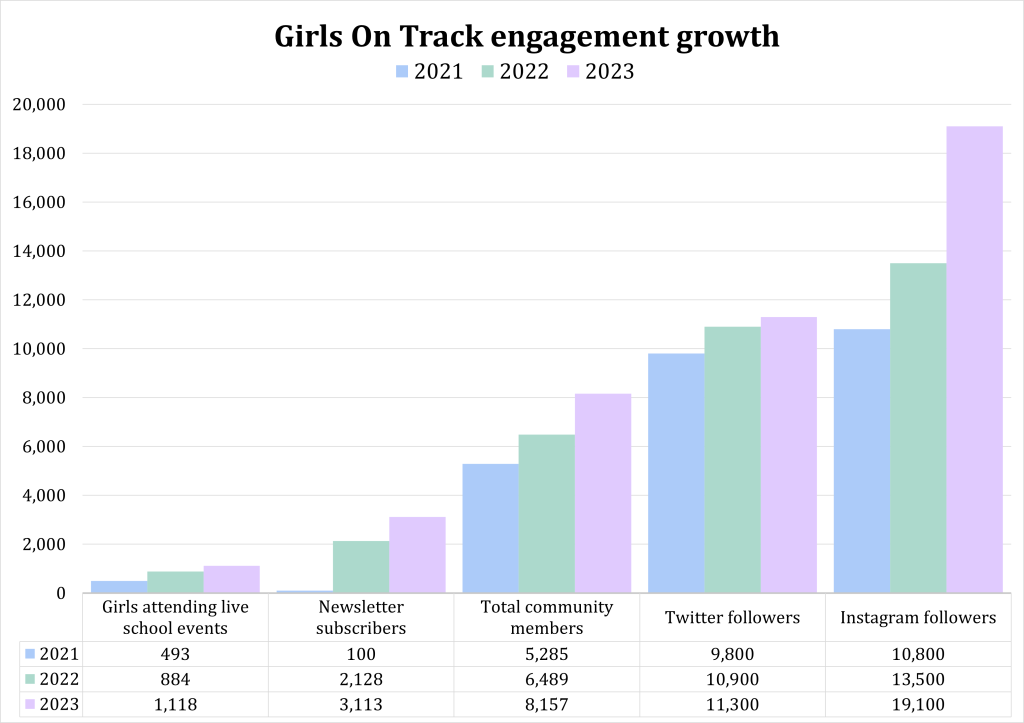
Since 2021, Girls On Track has experienced a 77% increase in their Instagram following and a 54% increase in their number of community members.
With engagement and interest on the rise, their community is growing with more young women realising their passion for motorsport each year.
As more young women join the community, members are seeing a rise in the number of potential connections and opportunities made available to them.
Each year, the aim of growing the number of women in motorsport is increasing as Girls On Track pushes women through the ranks.
As a Girls On Track member, Fadli Dokkali now helps other young women in the community progress further into motorsport since securing a postgraduate job with Mercedes AMG High-Performance Powertrains.
She aims to push young women of colour towards Mission 44, who she credits as her ‘saviour’ for giving her a fully-funded scholarship to study for a master’s degree in Aerospace Vehicle Design at Cranfield University.
Mission 44 is a charitable foundation established by the Formula 1 icon Lewis Hamilton, to carve new spaces in motorsport and empower young people from underserved communities.
Building on the findings of The Hamilton Commission, a research project to identify and improve the presence of black people in motorsport, Mission 44 set up scholarships and partnerships for young people aspiring to reach motorsport.
Since its conception in 2021, the programme has launched a Diversity in Education Fund, and Youth Advisory Board, and sent several aspiring engineers to further education pathways.
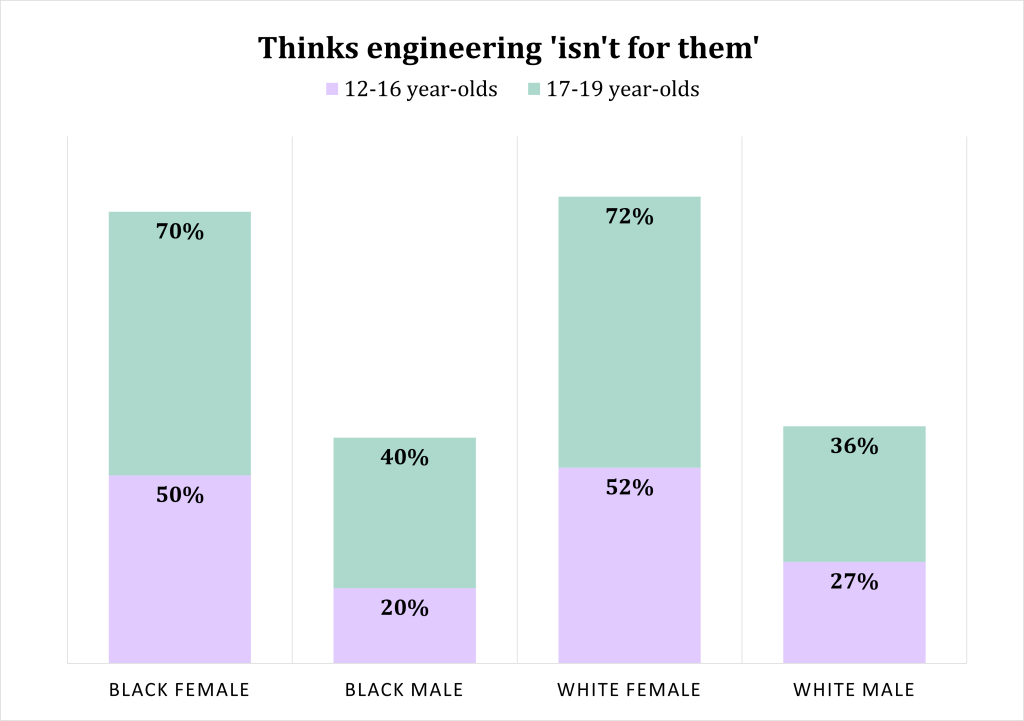
Publishing a report titled ‘Accelerating Change: Improving Representation of Black People in UK Motorsport’, The Hamilton Commission provided ten recommendations to address the barriers stopping young black people from pursuing jobs in motorsport.
Using a survey conducted by ICM Unlimited into the attitudes of 2444 young people aged 7-19 towards motorsport, it concluded that interest in a career in motorsport declines as young people age.
Data from the survey showed that as women get older they are more likely to feel like ‘engineering isn’t for them.’
For black and white females in the study, that feeling increases by 20% from 12-16 to 17-19 years old.
The data shows that for women in particular, the belief that they could have a career in motorsport falls to an astonishing low as they go through school.
This can be attributed to key barriers restricting young women from pursuing engineering.
Throughout the study, it is apparent that a lack of understanding or knowledge about motorsport develops as young people age.
Schools aren’t promoting motorsport as a viable career option, especially when financial struggles are factored in.
Often, young people from disadvantaged backgrounds are steered away from pursuing careers that will put them in a lot of debt.
With the amount of education and experience needed to pursue motorsport, the money adds up.
Fadli Dokkali shared: “I wouldn’t have applied for the masters if it wasn’t for Mission 44, it allowed me to finally get a job in F1 that I dreamed about for so long.
“I feel like this scholarship really pushed my boundaries and encouraged me to get out there, it made me aware of how important it is to have a presence in using our voices to make a change not only in the industry but in society in general.
“The first time I met the other scholars was great. It was great to finally have that safe place and group of people who not only shared the same passion as you, but also life experiences.”
Mission 44 partnered with Teach First in 2021 to recruit and train more black STEM teachers working across disadvantaged schools in England.
With the successful inaugural season of F1 Academy, an all-female racing series backed by Formula 1, motorsport is becoming a more welcoming place for women.
As more programmes and initiatives arise for young women, we are seeing motorsport evolve into less of a ‘boys club’ into a realm of opportunities.
